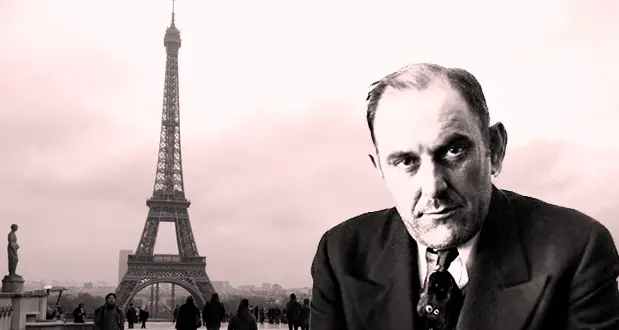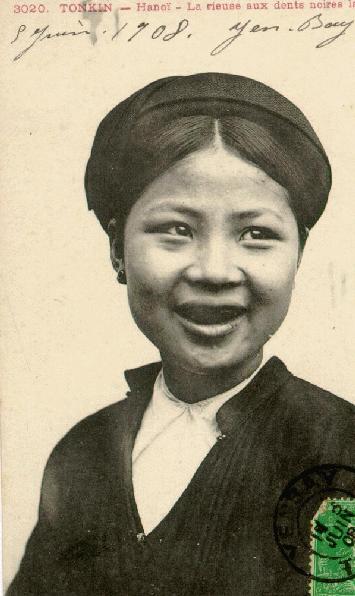 ount Victor Lustig is considered to be the greatest con-artist for the biggest as well as bravest scam ever pulled. With a career as a criminal which had started from a young age his latest scheme shook the world as he managed to sell the Eiffel Tower of Paris not once, but twice. Victor Lustig, the genius born in a small town in Austro-Hungary, had a hypnotic charm, knew five languages , and was the biggest fraud in history. He used to cheat rich tourists, using only his charisma.
ount Victor Lustig is considered to be the greatest con-artist for the biggest as well as bravest scam ever pulled. With a career as a criminal which had started from a young age his latest scheme shook the world as he managed to sell the Eiffel Tower of Paris not once, but twice. Victor Lustig, the genius born in a small town in Austro-Hungary, had a hypnotic charm, knew five languages , and was the biggest fraud in history. He used to cheat rich tourists, using only his charisma.
The finest con-artist
If you ever researched for the most famous or outstanding con-artists in history, Victor Lustig will always come on top. Believe it or not, Victor was accepted to one of Europe’s most prestigious universities, the Sorbonne. His life took a wrong turn as he decided to drop out of university in order to pursue an education of the streets. By the age of 25, he was traveling around the world, committing various crimes under different names.

He managed an impressive record of being arrested over 50 times, but somehow he always managed to escape conviction each time because he made sure that the authorities would lack evidence. This is what made him a real perfectionist in deceptive scams, remembering everything and relying on his character and the typical human nature most of his victims would present. The deception of his career had made him become the biggest scammer on the planet.
The holy grail of scams
He arrived in Paris in May 1925 and pretended to be an American official. France was still in the process of recovering. He appeared at the reception of the well-known Hôtel de Crillon, and his identity was not questioned for a moment. Lustig sent a letter to the top businessmen working in the metal industry, inviting them to the hotel for a meeting. In the letter, he stated that due to engineering mistakes, too expensive repairs, and other political issues that he couldn’t disclose, the demolition of the Eiffel Tower was required.
His idea was to act as a state representative, and with his charisma and intellect, it was very easy to persuade anyone of whom he wanted to appear to be. The tower was to be sold to the one who offered the highest amount. His audience was captivated, and the bidding went on. This was no common idea that someone would ever think of. He went on the ideology that the French government needed more financial power in order to recover from World War I, so selling the Eiffel Tower was a credible move.

Victor was assaulted with offers. The “winner” was Andre Poisson who got scammed for the sum of 350 million US dollars. Surprisingly, Victor’s scam did not come to light. Even after learning that he had been deceived, Poisson did not denounce him, in order not to be humiliated in the eyes of his colleagues. Encouraged by the success he had, “Count” Victor Lustig repeated the scam just a month later. However, this time the FBI (Federal Bureau of Investigation) was on his tail, not only for the first time he had sold the Eiffel Tower but also for counterfeiting banknotes at such a large scale that he managed to affect the economy of America in 1920.
Greed ended his career
As with most offenders, it was greed that ruined him. Lustig managed to break the law until September 28, 1935. That evening, FBI agent G. K Fireston gave his colleague Fred Gruber the signal. The two got in the car and hunted the count down nine streets. Eventually, the federal agents pulled out their weapons. The scam was sprouted. According to the Pittsburg Post-Gazette. Victor Lustig was arrested and a New York judge sentenced him to 20 years in prison. He died two years later in Alcatraz Prison due to pneumonia.

In prison, he told investigators that he was born in the Austro-Hungarian city of Hostinné on January 4, 1890. The town was arranged around a baroque clock tower and is in the shadow of the Krkonoše Mountains, a region that is now part of the Czech Republic. Before he was incarcerated, Lustig boasted that his father, Ludwig, was the mayor of the city, but in prison, he testified that his parents were just poor peasants and that they had raised him in a grim stone-built house.
Victor Lustig claimed that he stole to survive, but only from the greedy, rich, and dishonest. Victor died while he was serving his sentence in Alcatraz prison from pneumonia in 1944.
Avid Writer with invaluable knowledge of Humanity!
Upcoming historian with over 30 million views online.
“You make your own life.”





